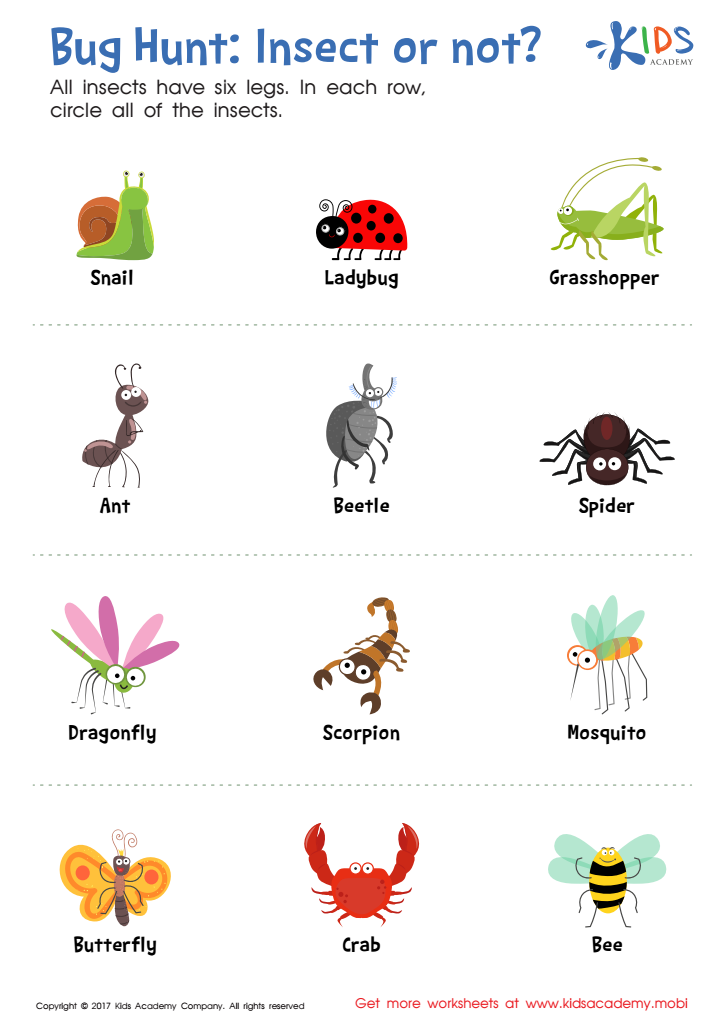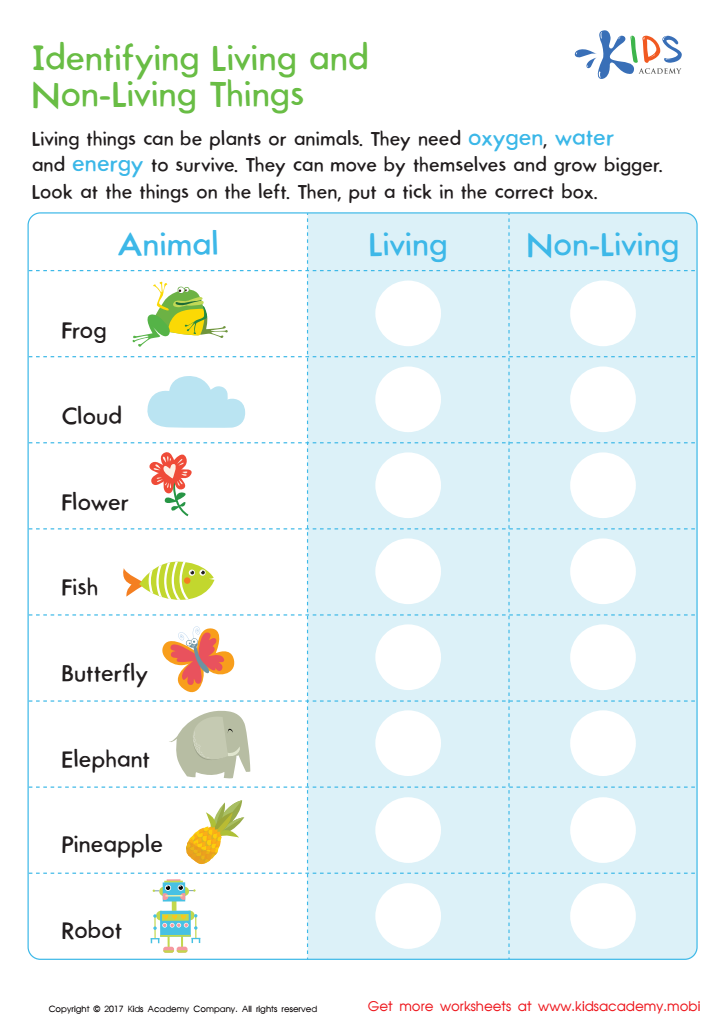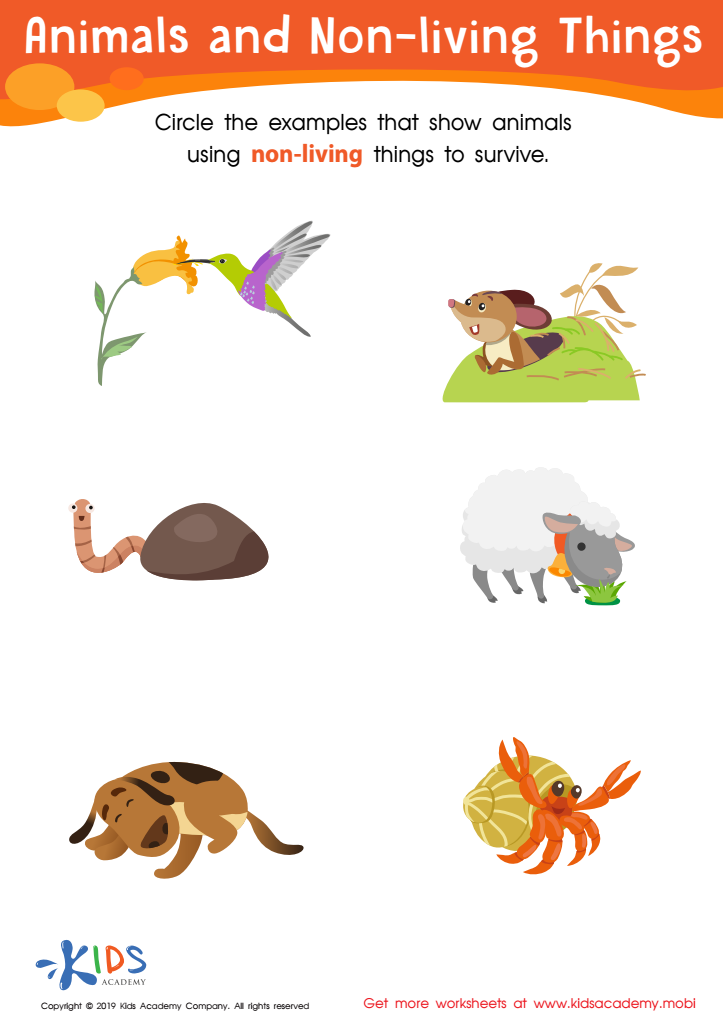Categorization skills Normal Science Worksheets for Ages 4-5
4 filtered results
-
From - To
Develop essential categorization skills with our specialized science worksheets designed for young learners aged 4-5. These engaging activities help children enhance their ability to organize, classify, and distinguish various items and concepts in the world around them. Through fun and interactive exercises, kids will improve their cognitive skills and build a solid foundation for scientific thinking. Perfectly tailored for early learners, these worksheets make mastering categorization both enjoyable and educational. Equip your child with the tools they need to succeed in their academic journey with Kids Academy's expertly crafted resources. Download now for free access to endless learning possibilities!


Sorting Animals in 3 Groups Worksheet




Identifying Living or Non–living Worksheet


Animals and Non-Living Things Worksheet
Categorization skills are critical cognitive abilities that enable children ages 4-5 to group items based on their similarities and differences. These skills form the foundation for numerous higher-level thinking processes and academic competencies, making them crucial for early childhood development.
For parents, fostering categorization is integral to helping children make sense of their world. When kids can categorize, they start to understand how things relate to one another, which enhances their ability to learn new information quickly and efficiently. For example, recognizing that apples and oranges both belong to the category of fruits helps children learn the properties that these items share, aiding their understanding of the broader world around them.
Teachers should also prioritize these skills because categorization directly impacts a child's readiness for more complex scientific thinking. Science often involves organizing and classifying information—skills that begin with simple sorting activities. Practicing categorization can enhance a child’s problem-solving abilities, critical thinking, and even language development as they learn to describe why items belong to specific groups.
In short, parents and teachers should care about developing categorization skills in young children because they lay the groundwork for essential cognitive and academic abilities, supporting future success in science and other subject areas. Investing time in these skills sets a strong developmental foundation.
 Assign to My Students
Assign to My Students



















